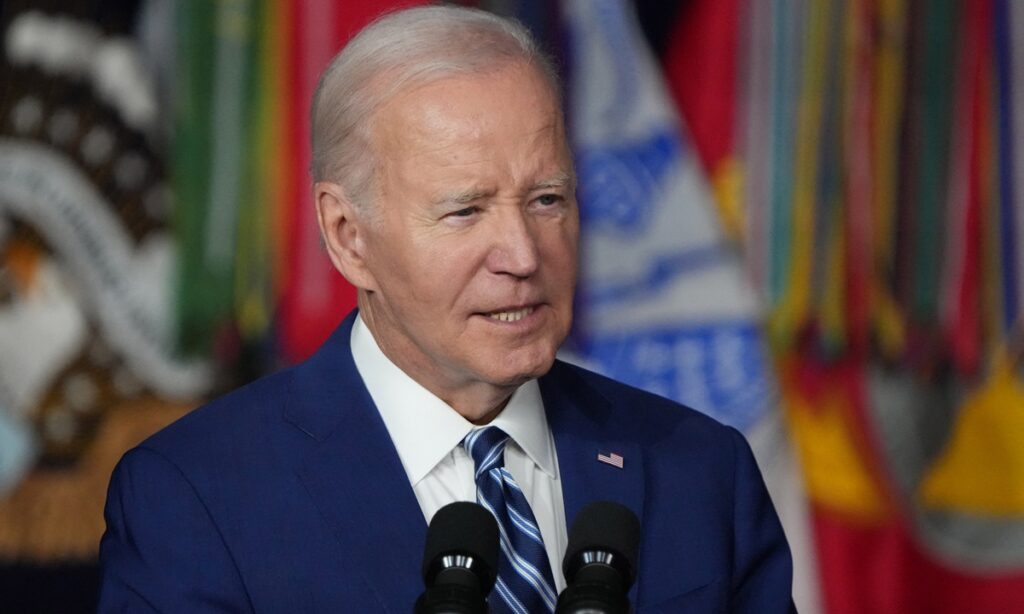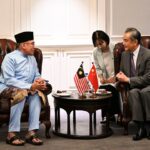At a political fundraising event in Park City, Utah on Thursday, US President Joe Biden said China was “in trouble” because of economic and population issues and slammed China’s economic situation as “a ticking time bomb” in many cases. He also said, “When bad folks have problems, they do bad things.” The remarks have been splashed across the American media. Bloomberg described the comments as “some of his most direct criticisms yet about the US’s top geopolitical and economic rival.”
As well-known American writer Mark Twain revealed in his book Running for Governor, American elections are full of shameless tricks such as lies, fraud, smears and slander. As some activities related to the US general election are kicking off, multiple candidates are not offering good strategies in terms of national governance, but focusing a lot on attacking each other and attacking China.
As the atmosphere in American society toward China has been severely poisoned by Washington, speaking harshly about China has become one of the cheapest ways for politicians to quickly attract attention, and Biden is no exception. We need to view Biden’s shocking remarks in this context, which are of the same nature as the more intense remarks on China by Republican candidates such as Ron DeSantis and Nikki Haley. Based on past experience, as the election campaign progresses, Washington’s bottom line will sink lower and lower, and more sensational claims are likely to come out. The unscrupulous smearing and attacking of China has made the US nastier and nastier.
But it must be said that Biden is not only a candidate, but also the incumbent president of the US and the head of state of a superpower. It is highly inappropriate for him to make inflammatory statements that go against basic facts and do not match his identity. It is not difficult for us to understand that Biden’s purpose in saying these words is nothing more than to score points for his campaign, to show his tough stance toward China, and to boast about his ability to deal with “threats and challenges” from China.
From Donald Trump to the current President Biden, the US presidents, like many politicians in Washington, keep talking tough about China. But what is interesting is that Trump and Biden, who are at odds with each other on many issues, have similar tones and arguments when it comes to China, and they talk more about what China is doing better than the US and in what aspects China is about to surpass the US, so as to stimulate the sense of crisis and urgency in the US to support the White House’s strategic competition against China.
As a result, the sum of Biden’s remarks on China contain obvious contradictions. Washington just issued an “unprecedented” administrative order to curb and suppress the development momentum of China’s high-tech, then it turned around and insisted that “China is in trouble.” A stronger China is a threat in the eyes of the Americans, while a “weaker” China has become a “ticking time bomb.” What then should China do so the US can have a healthy mentality toward China? The reality is that China not only has to be blamed for the frustration of US’ development, but also bear the belittling when Washington boasts of its achievements, and finally has to be responsible for the mental disorder of the US.
Unlike the US, China never threatens other countries with force, does not form military alliances, does not export ideology, does not go to other countries’ doorsteps to provoke troubles, does not infringe on other countries’ territories, does not initiate trade wars, and does not suppress the companies of other countries for no reason. China insists on putting the development of the country and the nation on the basis of its own strength. In the face of a turbulent and changing world, China has always stood in the right direction of historical progress and has always been a positive force for world peace and development. If there are “ticking time bombs,” they are planted by the US around the world.
Some people summed up the seven laws of American diplomacy, one of which is, “If the US suspects that you have done something bad, the US must have done it itself.” This can explain the strange logic of the US that no matter if China is strong or weak, it is a threat. When the US became strong, it launched the Iraq War and the Afghan War; when it declined relatively, it began to engage in unilateralism and camp confrontation. The inner world of Washington’s politicians may be dirty, but they should not think that everyone else is like them.
(Global Times)



